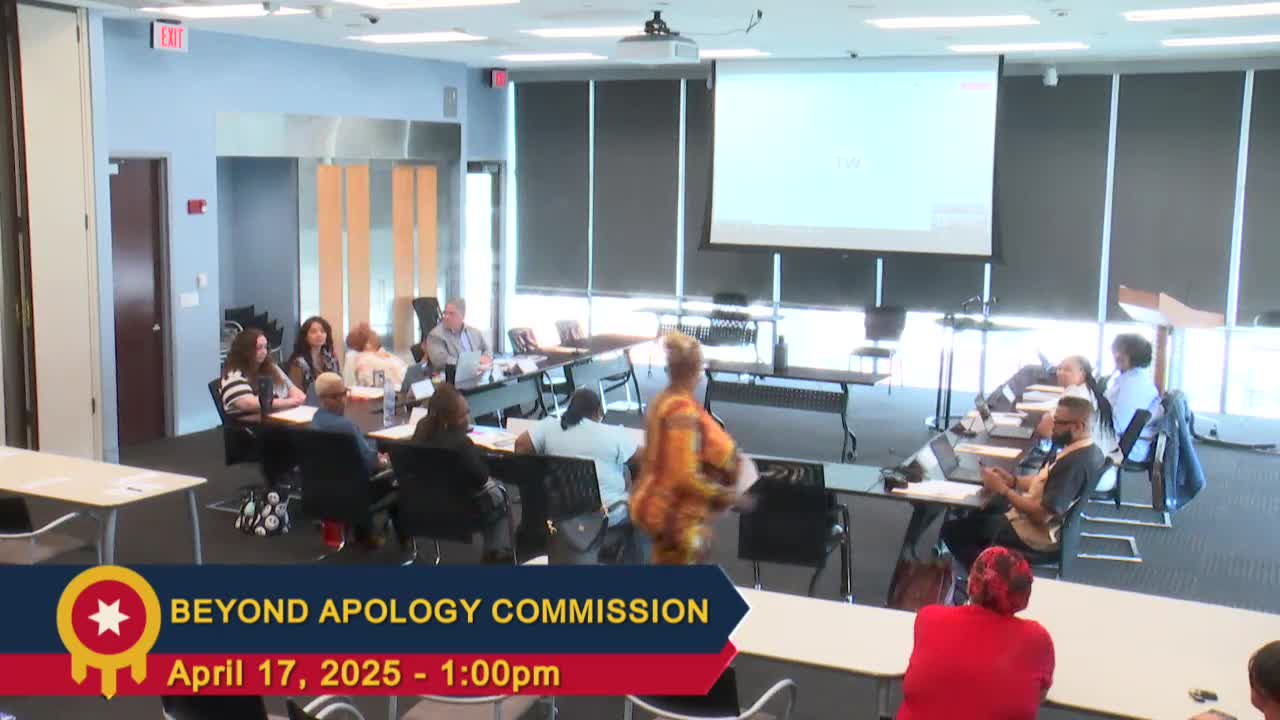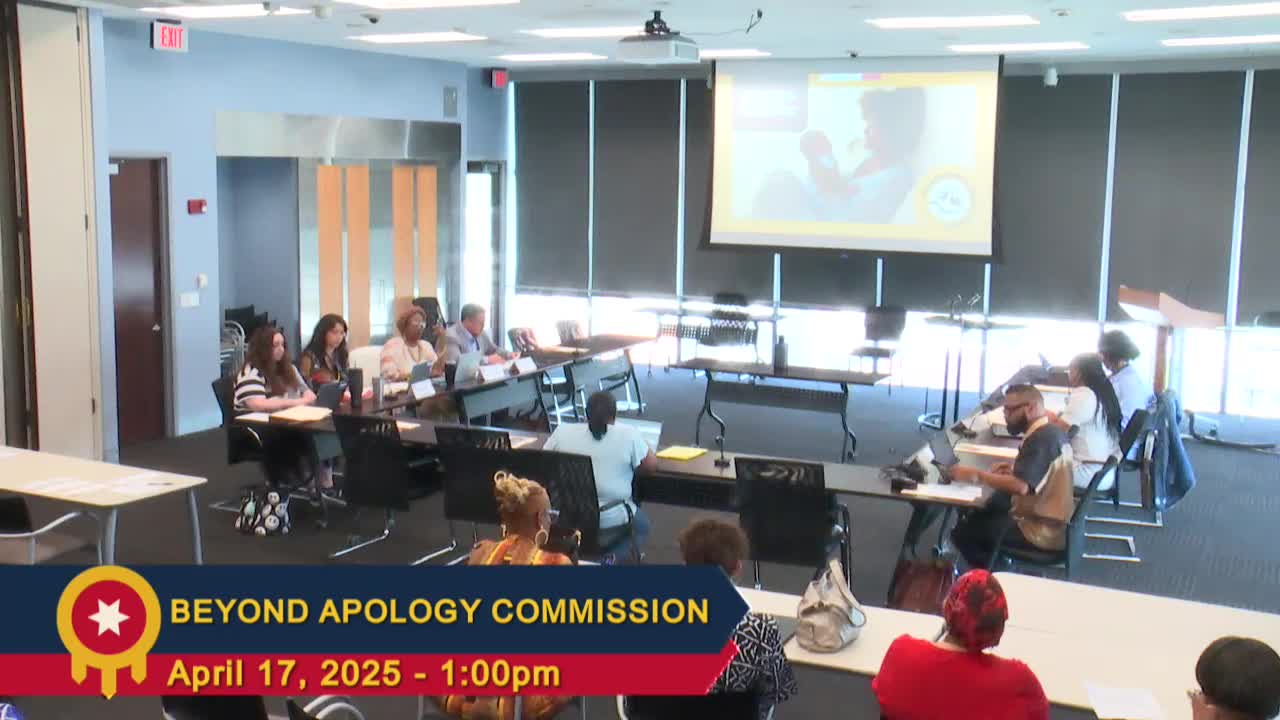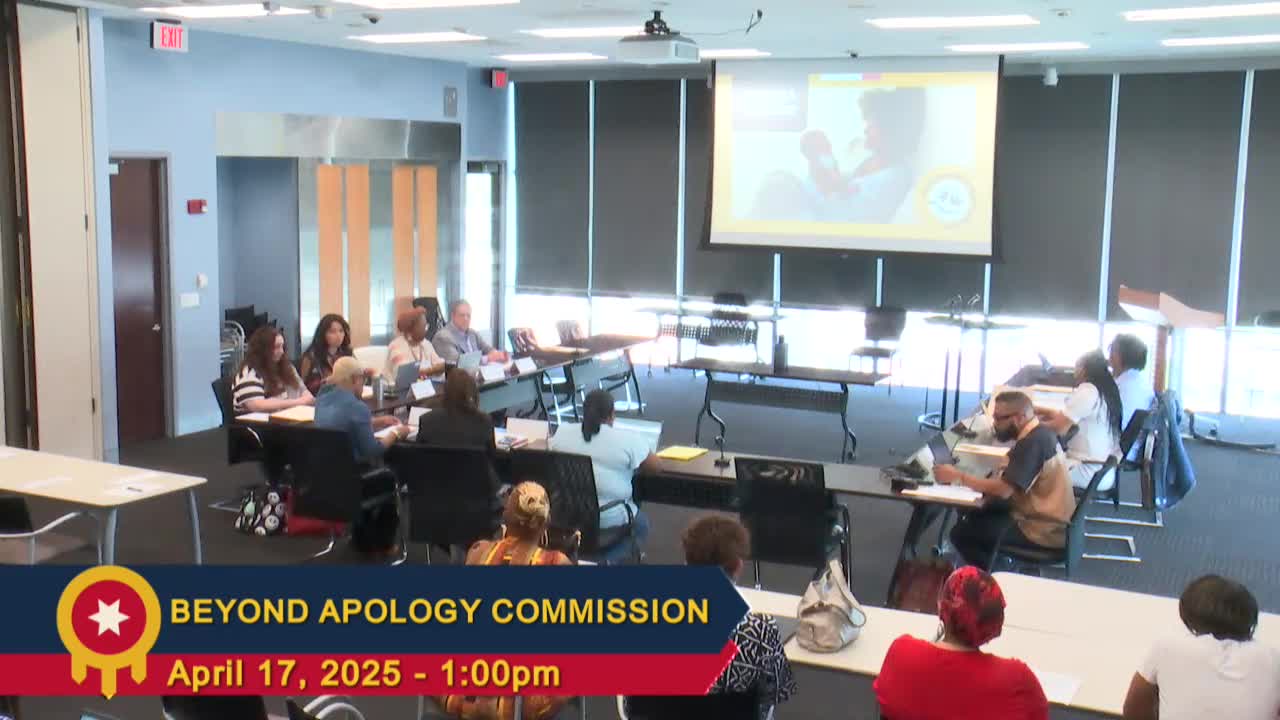Article not found
This article is no longer available. But don't worry—we've gathered other articles that discuss the same topic.

Deep Greenwood Foundation asks commission to back descendant certification and preservation; commissioners discuss protecting massacre-era trees and markers

Beyond Apology Commission approves bylaws and minutes; delays committee formation pending mayor's June 1 announcement

